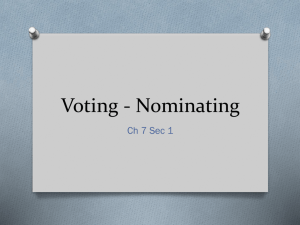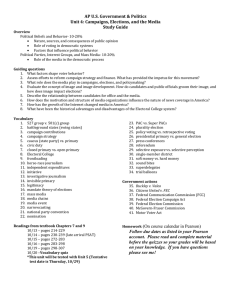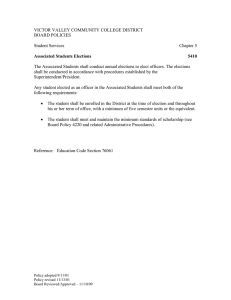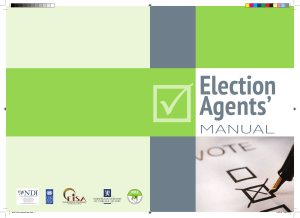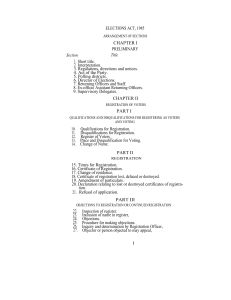Elections
advertisement
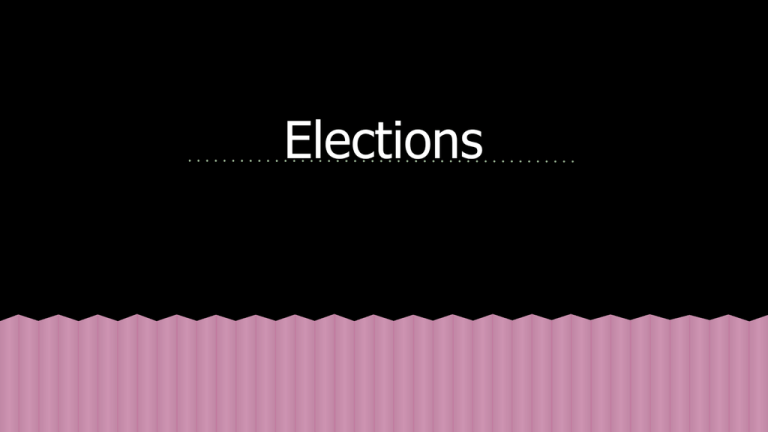
Elections The Big Idea The detailed procedures that govern the casting of votes for elected officials help ensure a democratic way of life • elections are largely governed by State law • aspects of national elections such as dates are governed by federal law • voting takes place in voting districts called precincts • within the precincts, voters cast their votes at polling places • a ballot is used to register a person’s votes • most states use a form of the Australian ballot--either an office-group ballot or a party-column ballot Elections • National Elections are held: A Democratic Government • November of every even number year succeed unless we • cannot The Tuesday-after-the-first-Monday have free, honest and on a Sunday or on • This insures election day is never the first day of theelections month accurate Absentee voting • Voting by those unable to get to their regular polling places on election day • 3 reasons you are allowed to vote absentee • too ill or disabled • expect to be away from home for whatever reasons • military service Precinct • • • • Voting Districts Smallest geographic units for the conduct of elections they deal with the polling places where people go to vote poll watchers: • They can challenge anyone they don’t believe is a qualified voter • monitor the process • handout sample ballots Australian Ballot • Started in Australia and toay all states in the US use it • 4 features • printed at public expense • lists the names of all candidates in an election • given out only at the polls • one to each qualified voter • Marked in Secret Money and election • SO MUCH MONEY • is spent on elections • Where does that money come from??? • 2 major forms • Public and Private • Spending in 2012 Private Contributions • Small contributors: those that give small amounts • this has been a major development over the years • Wealthy Individuals: Large donations • Candidates: give their own money • Perot the most: 65 million • Nonparty Groups: are given donations from their supporters • PAC: Political Action Committees • Special interest groups • Temporary organizations: • groups formed for the campaigns • Fund raisers Super PAC • These groups do not directly give the candidates money • HOWEVER: they are able to spend unlimited amounts of money to support the candidate in the form of adds, publications, and even movies • Citizen’s United Case • Prior to this ruling there were limits on how much money corporations could give to candidates • Corporate free speech is the same as individual free speech. FEC • Federal Election Committee • Deals with all federal laws dealing with campaign finance • Laws cover 4 broad areas • • • • timely disclosure of campaign finance data places limits on campaign contributions places limits on campaign expenditures provides public funding • everyone has to disclose where their money is going and where they are getting it • keeps everyone honest Limits on Contributions • Today no person can give more than 2000 to federal primary election or general election • 5000 to PAC • 25,000 to National Pary committee • Hard money • money raised and spent to elect candidates for Congress and WHite House • Limited • Soft Money • money given to party organization for stuff like voter registartion • no limits until 2002
